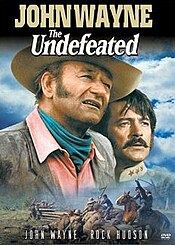
Victor Andrew de Bier Everleigh McLaglen was a British-American actor and boxer. His film career spanned from the early 1920s through the 1950s, initially as a leading man, though he was better known for his character acting. He was a well-known member of John Ford’s Stock Company, appearing in 12 of the director’s films, seven of which co-starred John Wayne.

The Horse Soldiers is a 1959 American adventure war western film set during the American Civil War directed by John Ford and starring John Wayne, William Holden and Constance Towers. The screenplay by John Lee Mahin and Martin Rackin was loosely based on Harold Sinclair's 1956 novel of the same name, a fictionalized version of Grierson's Raid in Mississippi.

Rio Grande is a 1950 American romantic Western film directed by John Ford and starring John Wayne and Maureen O'Hara. It is the third installment of Ford's "Cavalry Trilogy", following two RKO Pictures releases: Fort Apache (1948) and She Wore a Yellow Ribbon (1949). Wayne plays the lead in all three films, as Captain Kirby York in Fort Apache, then as Captain Nathan Brittles in She Wore a Yellow Ribbon, and finally as a promoted Lieutenant Colonel Kirby Yorke in Rio Grande. Rio Grande's supporting cast features Ben Johnson, Claude Jarman Jr., Harry Carey Jr., Chill Wills, J. Carrol Naish, Victor McLaglen, Grant Withers, the Western singing group the Sons of the Pioneers and Stan Jones.
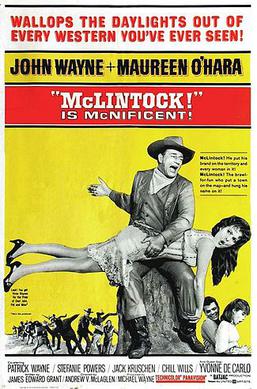
McLintock! is a 1963 American Western comedy film, starring John Wayne and Maureen O'Hara, directed by Andrew V. McLaglen. The film co-stars Wayne's son Patrick Wayne, Stefanie Powers, Jack Kruschen, Chill Wills, and Yvonne De Carlo. Loosely based on William Shakespeare's The Taming of the Shrew, the project was filmed in Technicolor and Panavision, and produced by Wayne's company, Batjac Productions.
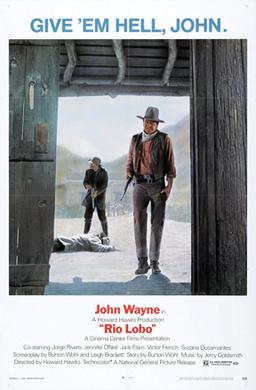
Rio Lobo is a 1970 American Western film directed and produced by Howard Hawks and starring John Wayne, from a screenplay by Burton Wohl and Leigh Brackett. The film was shot in Cuernavaca in the Mexican state of Morelos and in Tucson, Arizona. The musical score was composed by Jerry Goldsmith. It was the third Howard Hawks film varying the idea of a sheriff defending his office against belligerent outlaw elements in the town, after Rio Bravo (1959) and El Dorado (1966), both also starring John Wayne. Rio Lobo was the last film made by Hawks.
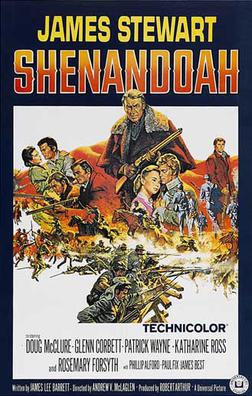
Shenandoah is a 1965 American film set during the American Civil War starring James Stewart and featuring Doug McClure, Glenn Corbett, Patrick Wayne, and, in their film debuts, Katharine Ross and Rosemary Forsyth. The picture was directed by Andrew V. McLaglen. The American folk song "Oh Shenandoah" features prominently in the film's soundtrack.
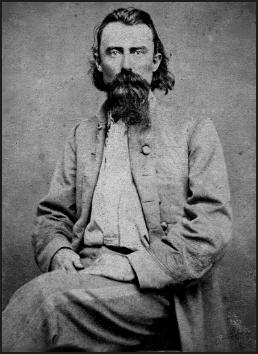
Joseph Orville "J.O." Shelby was a senior officer of the Confederate States Army who commanded cavalry in the Trans-Mississippi Theater of the American Civil War. After the Confederacy surrendered, Shelby tried to swear fealty to Emperor Maximilian I during the French invasion of Mexico. With the Emperor's permission, Shelby formed a colony of Confederate exiles in Mexico until the defeat of the French, then abandoned the operation.

Hellfighters is a 1968 American adventure film directed by Andrew V. McLaglen and starring John Wayne, Katharine Ross, Jim Hutton and Vera Miles. The movie depicts a group of oil well firefighters and is based loosely on the life of Red Adair. Adair, "Boots" Hansen, and "Coots" Matthews served as technical advisers on the film.
Andrew Victor McLaglen was a British-born American film and television director, known for Westerns and adventure films, often starring John Wayne or James Stewart.
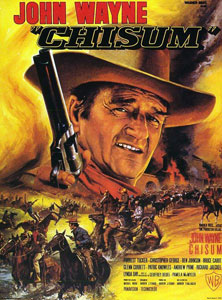
Chisum is a 1970 American Western film directed by Andrew McLaglen, starring John Wayne in the title role, and adapted for the screen by Andrew J. Fenady from his short story "Chisum and the Lincoln County War." The supporting cast features Forrest Tucker, Christopher George, Ben Johnson, Glenn Corbett, Andrew Prine, Bruce Cabot, Patric Knowles, Richard Jaeckel, Lynda Day George, Pedro Armendariz Jr., John Agar, John Mitchum, Ray Teal, Christopher Mitchum and Hank Worden with Geoffrey Deuel and Pamela McMyler receiving "introducing" credits. The picture was filmed in Panavision and Technicolor.
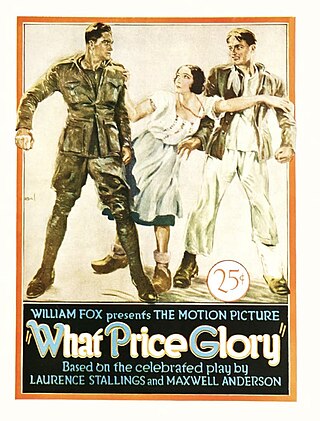
What Price Glory? is a 1926 American synchronized sound comedy drama war film produced and distributed by Fox Film Corporation and directed by Raoul Walsh. The film was released with a synchronized musical score with sound effects using the Movietone sound system. The film is based on the 1924 play What Price Glory by Maxwell Anderson and Laurence Stallings and was remade in 1952 as What Price Glory starring James Cagney. Malcolm Stuart Boylan, founder of the U.S. Coast Guard Auxiliary, was title writer on the silent Fox attraction.

Bandolero! is a 1968 American Western film directed by Andrew V. McLaglen and starring James Stewart, Dean Martin, Raquel Welch and George Kennedy. The story centers on two brothers on the run from a posse, led by a local sheriff who wants to arrest the runaways and free a hostage that they took along the way. They head into the wrong territory, which is controlled by "Bandoleros".
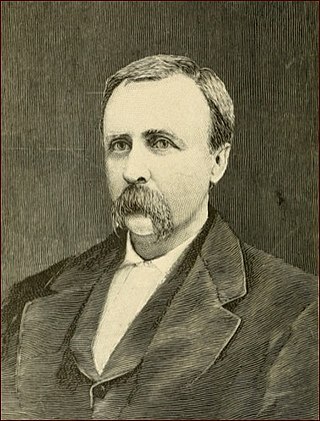
Major John Newman Edwards was famed General Joseph O. Shelby's adjutant during the American Civil War, an author, and a pro-Confederate journalist who founded the Kansas City Times. He is perhaps best known for contributing to the folk hero status of outlaw Jesse James.
The War Wagon is a 1967 American Western heist film directed by Burt Kennedy and starring John Wayne and Kirk Douglas. Released by Universal Pictures, it was produced by Marvin Schwartz and adapted by Clair Huffaker from his own novel. The supporting cast includes Howard Keel, Robert Walker Jr., Keenan Wynn, Bruce Cabot, Joanna Barnes, Valora Noland, Bruce Dern, and Gene Evans. The film received generally positive reviews.

The Devil's Brigade is a 1968 American DeLuxe Color war film filmed in Panavision, based on the 1966 book of the same name co-written by American novelist and historian Robert H. Adleman and Col. George Walton, a member of the brigade.
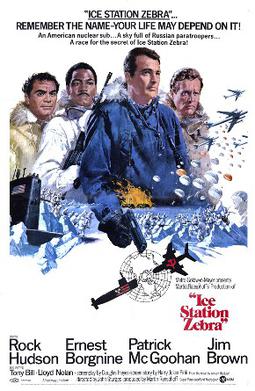
Ice Station Zebra is a 1968 American espionage thriller film directed by John Sturges and starring Rock Hudson, Patrick McGoohan, Ernest Borgnine, and Jim Brown. The screenplay is by Douglas Heyes, Harry Julian Fink, and W. R. Burnett, loosely based on Alistair MacLean's 1963 novel. Both have parallels to real-life events that took place in 1959. The film concerns a US nuclear submarine that must rush to the North Pole to rescue the members of the Ice Station Zebra.

Rio Conchos is a 1964 American Cinemascope Western film directed by Gordon Douglas and starring Richard Boone, Stuart Whitman, Anthony Franciosa, Edmond O'Brien, and in his motion picture debut, Jim Brown, based on Clair Huffaker's novel "Guns of Rio Conchos" published in 1958.

Cahill U.S. Marshal is a 1973 American Western film in Technicolor starring John Wayne as a driven lawman in a black hat. The film was directed by Andrew V. McLaglen and filmed on location in Durango, Mexico. The supporting cast features George Kennedy, Neville Brand, Marie Windsor, Royal Dano, Denver Pyle, Jackie Coogan, Harry Carey Jr., Paul Fix and Hank Worden.

Confederate colonies were made up of Confederate refugees who were displaced or fled their homes during or immediately after the American Civil War. They migrated to various countries, but especially Brazil, where slavery remained legal, and to a lesser extent Mexico and British Honduras.
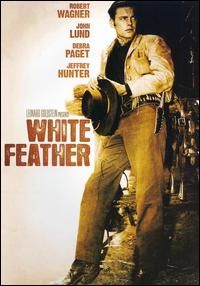
White Feather is a 1955 American CinemaScope Western film directed by Robert D. Webb and starring Robert Wagner. The movie was filmed in Durango, Mexico. The story is based on fact; however, the particulars of the plot and the characters of the story are fictional.

